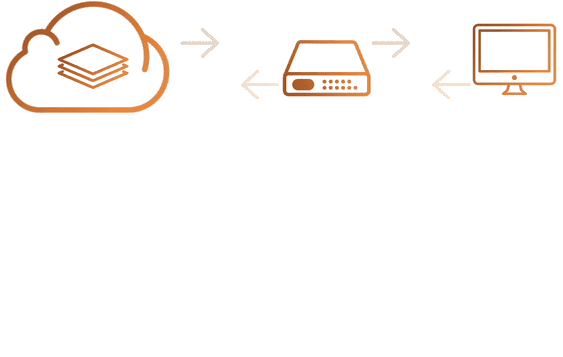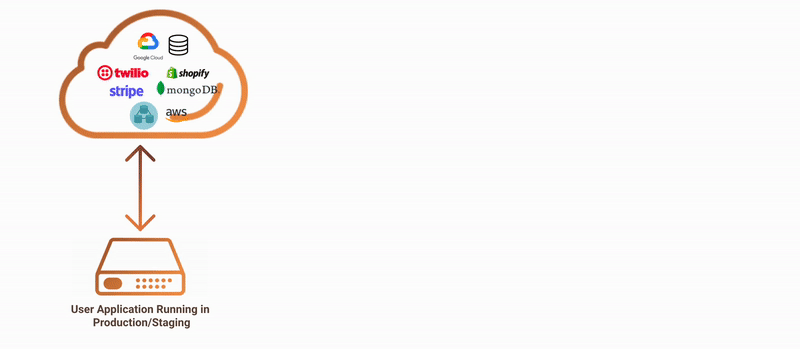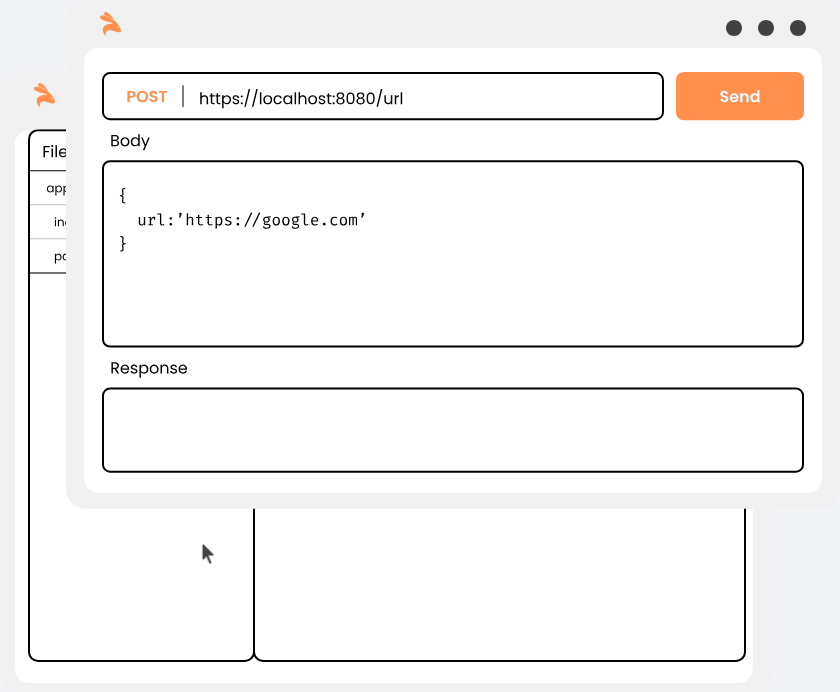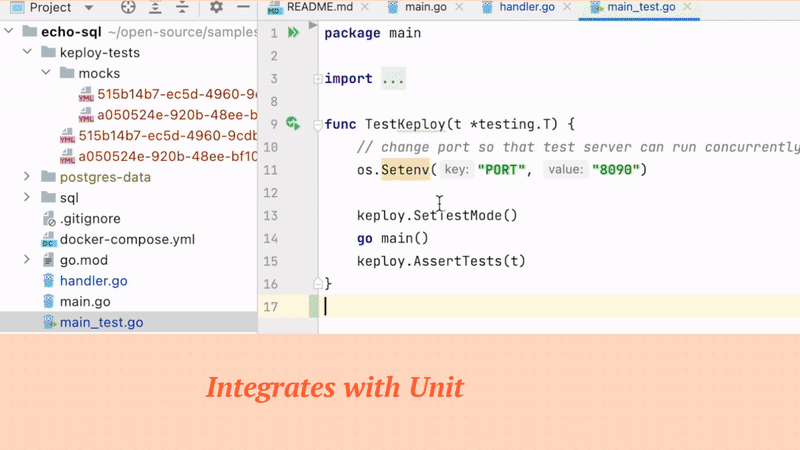
Security News
Oracle Drags Its Feet in the JavaScript Trademark Dispute
Oracle seeks to dismiss fraud claims in the JavaScript trademark dispute, delaying the case and avoiding questions about its right to the name.
go.keploy.io/server
Keploy is a functional testing toolkit for developers. It generates E2E tests for APIs (KTests) along with mocks or stubs(KMocks) by recording real API calls. KTests can be imported as mocks for consumers and vice-versa.

Merge KTests with unit testing libraries(like Go-Test, JUnit..) to track combined test-coverage.
KMocks can also be referenced in existing tests or use anywhere (including any testing framework). KMocks can also be used as tests for the server.
Keploy is testing itself with
without writing many test-cases or data-mocks. 😎



 : WIP #58
: WIP #58Keploy is added as a middleware to your application that captures and replays all network interaction served to application from any source.
Visit https://docs.keploy.io to read more in detail..

Whether you are a community member or not, we would love your point of view! Feel free to first check out our

go-test, junitKeploy has native interoperability as it integrates with popular testing libraries like go-test, junit.
Code coverage will be reported with existing plus KTests. It'll also be integrated in CI pipelines/infrastructure automatically if you already have go-test, junit integrated.

Filters noisy fields in API responses like (timestamps, random values) to ensure high quality tests.
WIP - Statistical deduplication ensures that redundant testcases are not generated. WIP (ref #27).
curl --silent --location "https://github.com/keploy/keploy/releases/latest/download/keploy_darwin_all.tar.gz" | tar xz -C /tmp
sudo mkdir -p /usr/local/bin && sudo mv /tmp/keploy /usr/local/bin && keploy
curl --silent --location "https://github.com/keploy/keploy/releases/latest/download/keploy_linux_amd64.tar.gz" | tar xz -C /tmp
sudo mkdir -p /usr/local/bin && sudo mv /tmp/keploy /usr/local/bin && keploy
curl --silent --location "https://github.com/keploy/keploy/releases/latest/download/keploy_linux_arm64.tar.gz" | tar xz -C /tmp
sudo mkdir -p /usr/local/bin && sudo mv /tmp/keploy /usr/local/bin && keploy
Download the Keploy Windows AMD64, and extract the files from the zip folder.
Run the keploy.exe file.
Download the Keploy Windows ARM64, and extract the files from the zip folder.
Run the keploy.exe file.
After running Keploy Server, let's integrate the SDK into the application. If you're integrating in custom project please choose installation documentation according to the language you're using.
Demos using Echo/PostgreSQL and Gin/MongoDB are available here. For this example, we will use the Echo/PostgreSQL sample.
git clone https://github.com/keploy/samples-go && cd samples-go/echo-sql
go mod download
docker-compose up -d
export KEPLOY_MODE=record && go run handler.go main.go
To genereate testcases we just need to make some API calls. You can use Postman, Hoppscotch, or simply curl
Note : KTests are exported as files in the current directory(.) by default
curl --request POST \
--url http://localhost:8082/url \
--header 'content-type: application/json' \
--data '{
"url": "https://github.com"
}'
this will return the shortened url. The ts would automatically be ignored during testing because it'll always be different.
{
"ts": 1647802058801841100,
"url": "http://localhost:8082/GuwHCgoQ"
}
curl --request GET \
--url http://localhost:8082/GuwHCgoQ
You just need 3 lines of code in your unit test file and that's it!!🔥🔥🔥
For an example, for a file named main.go create a unit test file as main_test.go in the same folder as main.go.
Contents of main_test.go:
package main
import (
"github.com/keploy/go-sdk/keploy"
"testing"
)
func TestKeploy(t *testing.T) {
keploy.SetTestMode()
go main()
keploy.AssertTests(t)
}
Note: Before running tests stop the sample application
go test -coverpkg=./... -covermode=atomic ./...
this should show you have 74.4% coverage without writing any code!
ok echo-psql-url-shortener 5.820s coverage: 74.4% of statements in ./...
The Test Run can be visualised in the terminal where Keploy server is running. You can also checkout the details of the Test Run Report as a report file generated locally in the Keploy Server directory.
The Keploy SDKs modes can operated by setting KEPLOY_MODE environment variable
Note: KEPLOY_MODE value is case sensitive
There are 3 Keploy SDK modes:
export KEPLOY_MODE="off"
export KEPLOY_MODE="record"
export KEPLOY_MODE="test"
Need another language support? Please raise an issue or discuss on our slack channel
The fastest way to start with Keploy is the Gitpod-hosted version. When you're ready, you can install locally or host yourself.
One-click deploy sample URL Shortener application sample with Keploy using Gitpod
🤔 FAQs
🕵️️ Why Keploy
We'd love to collaborate with you to make Keploy great. To get started:
FAQs
Unknown package
Did you know?

Socket for GitHub automatically highlights issues in each pull request and monitors the health of all your open source dependencies. Discover the contents of your packages and block harmful activity before you install or update your dependencies.

Security News
Oracle seeks to dismiss fraud claims in the JavaScript trademark dispute, delaying the case and avoiding questions about its right to the name.

Security News
The Linux Foundation is warning open source developers that compliance with global sanctions is mandatory, highlighting legal risks and restrictions on contributions.

Security News
Maven Central now validates Sigstore signatures, making it easier for developers to verify the provenance of Java packages.